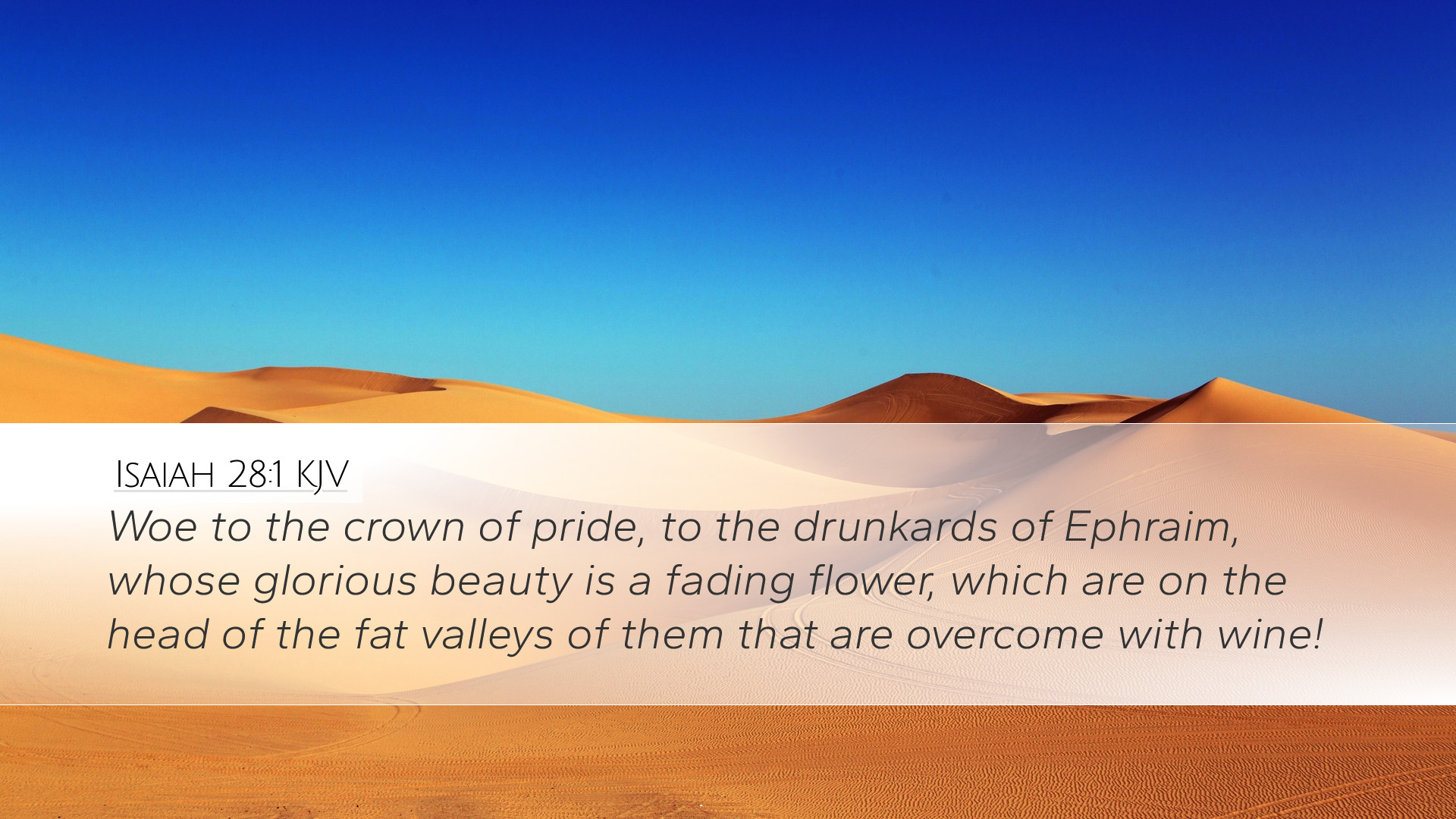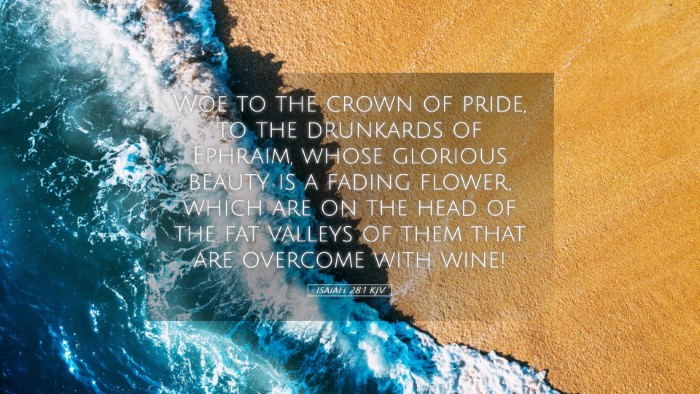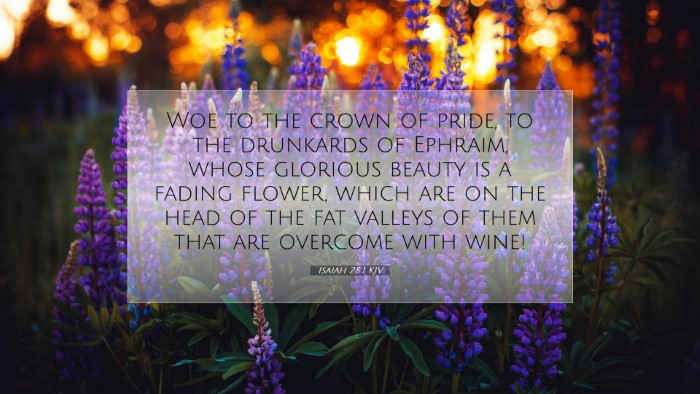Commentary on Isaiah 28:1
Verse: "Woe to the crown of pride, to the drunkards of Ephraim, whose glorious beauty is a fading flower, which are on the head of the fat valleys of them that are overcome with wine!"
Introduction
This verse serves as a pivotal proclamation from the prophet Isaiah, addressing the pride and moral decay prevalent among the people of Ephraim (a significant tribe of Israel). The vivid imagery and metaphors used encapsulate the essence of the spiritual and social ills afflicting God’s people during this time.
Contextual Analysis
The context of Isaiah 28 is crucial for understanding this verse. Isaiah is delivering a message of warning to both the northern kingdom of Israel (Ephraim) and the southern kingdom of Judah, highlighting their collective failures and impending judgment. The prophetic outburst reflects God’s concern over the rampant idolatry, immorality, and disregard for divine law present among His people.
Matthew Henry's Insights
Matthew Henry emphasizes the "crown of pride" as a representation of the leaders and prominent figures within Ephraim. He notes that their pride and arrogance stem from their spiritual blindness, resulting in an attitude of self-sufficiency. Henry elaborates that the phrase "crown of pride" metaphorically indicates their lofty status, which is juxtaposed against their moral failures.
- Pride: A central theme; Henry states that pride leads to a downfall, demonstrating how the glorious outward appearance is deceptive.
- Drunkenness: This state of being symbolizes a lack of clarity in judgment and the indulgence in sin, reflecting the spiritual inebriation of the society.
Albert Barnes' Contributions
Albert Barnes explores the allusion to the glory and beauty of the people, which he describes as "a fading flower." He interprets this metaphor as an acknowledgment of how quickly beauty and prosperity can wither away in the face of divine judgment. Barnes particularly points out that the "fat valleys" symbolize areas of abundance, highlighting the tragic irony of their current state—a glorious past decaying into oblivion due to sin and pride.
- Moral Decay: "The proud have made themselves drunk with pride, neglecting their duties," illustrates how moral decay leads to external judgments.
- Fading Beauty: The temporal nature of worldly glory contrasts sharply with eternal values, warning that reliance on external beauty is ultimately futile.
Adam Clarke's Reflections
Adam Clarke takes a deeper dive into the symbolism present in the text. He asserts that the term "drunkards" signifies not just literal drunkenness but also a metaphor for being intoxicated with the allure of sin and worldly desires. Clarke argues that this condition leads the leaders of Ephraim to a spiritual stupor where they fail to recognize the impending judgment.
- Spiritual Stupor: Clarke explains how this state cripples moral discernment and results in a general societal apathy towards divine warnings.
- Divine Judgment: The imagery of fading flowers serves as a warning that God’s patience has limits, and sin inevitably leads to destruction.
Theological Significance
This passage is significant for various theological reflections, particularly concerning pride, judgment, and the transient nature of human achievements.
- Pride's Pitfall: The emphasis on pride serves as a timeless reminder that spiritual leaders and communities must remain humble, recognizing their dependence on God.
- The Nature of Judgment: Isaiah's prophetic voice underscores a critical theme: that divine judgment is not arbitrary; it is the result of a rejection of God’s principles.
- Hope in Restoration: Despite the harshness of the warning, the broader context of Isaiah offers glimpses of hope and restoration for those who turn back to God.
Applications for Modern Readers
This text holds compelling applications for both individuals and communities today. The warnings about pride and moral decay are as relevant as ever.
- Self-Examination: Readers are called to examine their hearts and attitudes towards pride, humility, and dependence on God.
- Community Accountability: Church leaders must foster environments of accountability, where pride is addressed and humility is encouraged.
- Rejection of Worldly Values: The passage encourages believers to seek eternal values over transient pleasures, reminding them of the fleeting nature of earthly success.
Conclusion
Isaiah 28:1 is a profound reminder of the dangers of pride and the necessity of humility before God. Through the insights provided by Matthew Henry, Albert Barnes, and Adam Clarke, readers are invited to reflect on their spiritual state and the collective condition of society. The call to repentance, humility, and reliance on God is echoed throughout the ages and remains relevant for us today.


